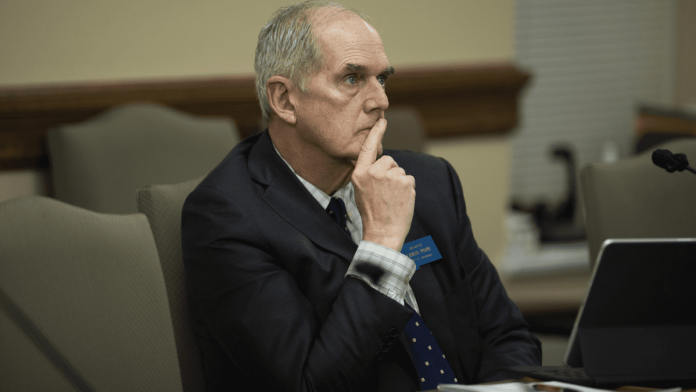This story is adapted from the MT Lowdown, a weekly newsletter digest containing original reporting and analysis published every Friday.
For more than a year, Montana’s state health department has been embroiled in a sweeping effort to “unwind” the state Medicaid program, conducting a mass eligibility review of every person enrolled in the public health program, which provides health coverage for many lower-income residents.
The unwinding, being conducted after federal officials lifted pandemic-era restrictions on striking people from the Medicaid rolls last year, has seen the state remove more than 135,000 Montanans from the program. Department data indicates that most of those removals, nearly two-thirds, have been because prior enrollees didn’t provide information the department had requested for verifying their eligibility status, rather than because a complete review had deemed them ineligible.
As the unwinding process concludes, Department of Public Health and Human Services officials plan to release a full report on the impacts of the redetermination process by the end of the month. They also spoke last week with a committee of lawmakers who oversee the agency’s budget, giving the public an initial glimpse of what the state Medicaid system looks like now that the redetermination process is mostly complete.
State health officials said that Montana’s overall Medicaid enrollment had dropped to below pre-pandemic levels and slightly below the department’s projected enrollment for when the redetermination period ended. That applies to both the traditional Medicaid population — including children, older people and those with disabilities — and people covered by Montana’s Medicaid expansion — single adults who are eligible for the program because of their lower monthly income.
Legislative budget staffers separately calculated that the decline in Medicaid enrollment was projected to create a $202 million budget surplus, though mostly for federal funds. Analysts estimate that $40 million of the savings would come from the portion of the Medicaid budget paid for with state dollars.
Health officials said that roughly 9% of enrollment cases, representing nearly 20,000 people, are still pending, mostly involving people with particularly complex medical or financial circumstances. Beyond that, the department indicated it is returning to its normal application processing and case review, where officials reassess Medicaid eligibility when an enrollee reports a change in their circumstances, such as the number of people in their household or their income.
But pinpointing the true “end” of the Medicaid redetermination era is not as simple as health department officials might like. The agency isn’t tracking the health insurance status of the 135,000-plus people no longer covered by the state. Some of those people may have found coverage through the federal health insurance marketplace or their employer, while others may simply be uninsured. It’s also unclear how many of the former enrollees will end up successfully reapplying for Medicaid coverage at a future date.
Lawmaker reactions to the department’s update were split by party affiliation. Democrats, who have repeatedly used the Medicaid unwinding as a political cudgel against the administration of Gov. Greg Gianforte, questioned Director Charlie Brereton about the department’s next steps in trying to reach back out to the people who lost coverage because of communication lapses.
“We have a fair number of folks who just sort of disappeared off the map here,” said Sen. Chris Pope, D-Bozeman. “There’s probably some folks that were on the rolls that still would like to be on the rolls and would still qualify … Do we just close the book on this?”
Brereton, in short, said yes — the department is not planning to continue any public messaging or outreach campaigns related to redetermination. Anyone who thinks they’re eligible for Medicaid, he added, is welcome to apply.
Sen. Carl Glimm, R-Kila, said he’s more optimistic that many of the people who didn’t respond to the department’s redetermination inquiries had simply found health coverage elsewhere.
“I would point out that, almost anywhere you go in the state, there is ‘help wanted’ signs everywhere,” Glimm said. “I think it’s fully realistic to think that a lot of these people came off the rolls because they are ineligible. And they knew they were ineligible, so they didn’t reapply. And that’s a success.”
“I would subscribe to that view. It’d be a lot easier to do so if there was data,” Pope replied. “I think that’s a decent sort of representation of what could be happening out there in the world, but we really don’t know.”
The post Lawmakers muse about health coverage for Montanans disenrolled from Medicaid appeared first on Montana Free Press.




